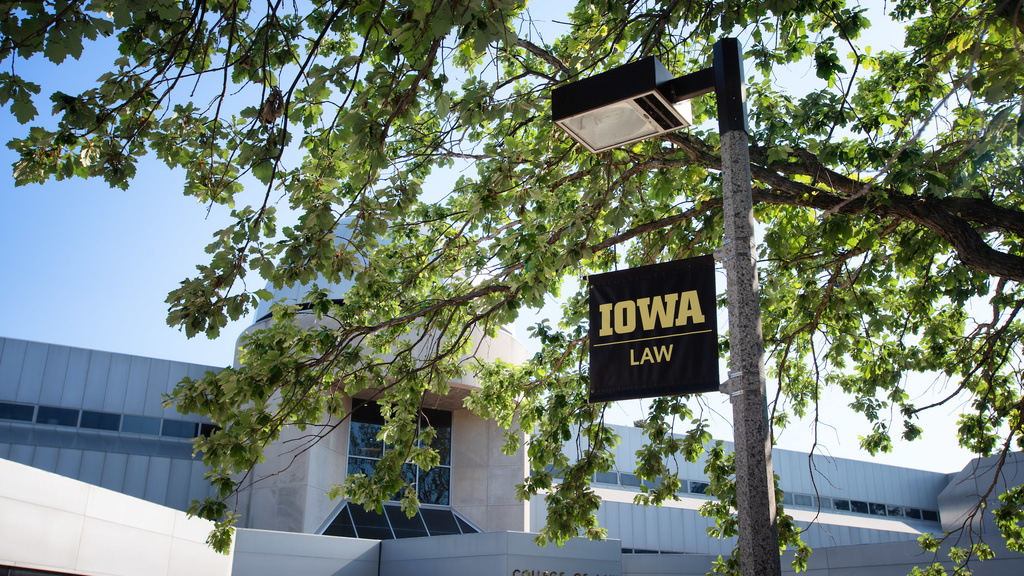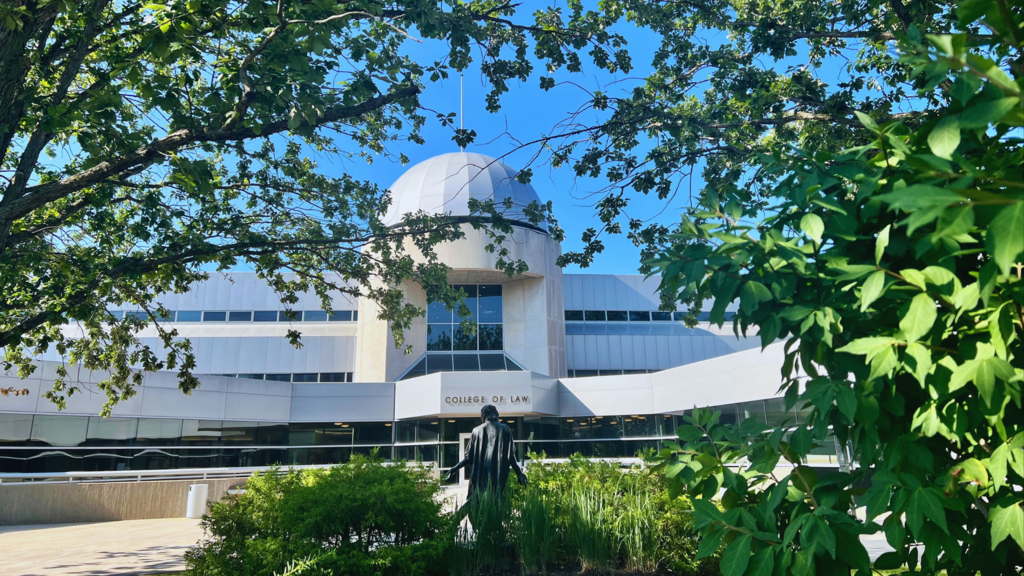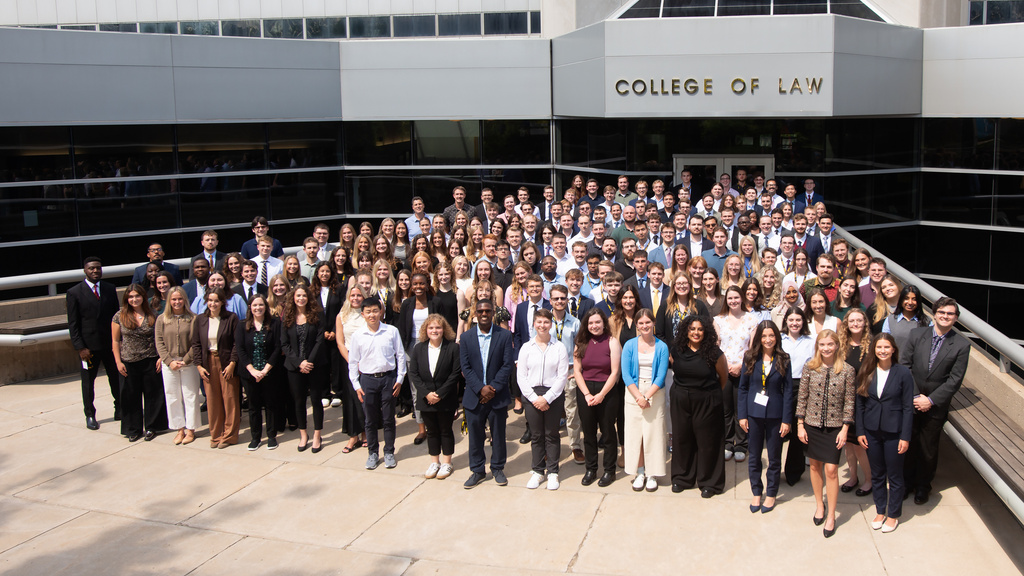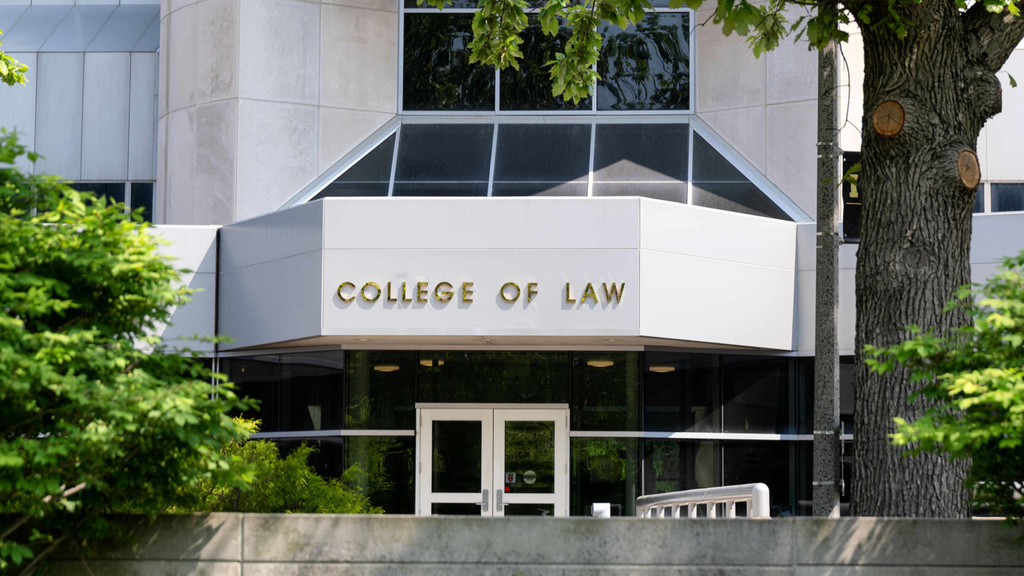News
Boyd Law Building winter break hours
Thursday, December 18, 2025
Boyd Law Building will alter its hours during winter break.

Iowa Law named a top 3 “best return on investment” law school
Thursday, December 4, 2025
The ABA Journal recently published the list following an analysis by LawCrossing.

Student Spotlight: Theresa Eckel is turning her passion for writing into a force for good
Wednesday, November 12, 2025

New York Times opinion columnist Bret Stephens headlines fall 2025 Levitt Lecture
Monday, November 10, 2025


Iowa Law students contribute to Iowa Access to Justice Commission's annual report to Iowa Supreme Court
Tuesday, October 21, 2025

Learning from the bench: Three Iowa Law graduates reflect on their clerkships
Tuesday, October 21, 2025
Three Iowa Law graduates share what they learned during their clerkship experience.

Iowa Law awarded highest ranking for human rights law for fifth consecutive year
Tuesday, October 14, 2025
The University of Iowa College of Law received the highest possible rating (A+) for human rights law by National Jurist’s preLaw magazine and ranks among the top 12 law schools in the country for its program. The magazine assesses schools on their curricular breadth, including concentrations, clinics, centers, and journals.


Iowa Law School Foundation welcomes new board members
Tuesday, September 16, 2025
The foundation is made up of University of Iowa College of Law alumni, students, faculty, and the dean who all work to advance the mission of Iowa Law.


Iowa Law announces 2025 class profile
Monday, September 8, 2025
Learn more about the incoming class of students who have joined Iowa Law in their first year during the fall of 2025.




Iowa Law School Foundation elects Jim Sawtelle as vice president
Tuesday, July 15, 2025
Jim Sawtelle (91JD) recently began his new leadership role with the Iowa Law School Foundation (ILSF), beginning July 1, 2025.
Shining a light on service: Iowa Law students record nearly 22,000 pro bono hours
Monday, July 14, 2025
Students studying law at the University of Iowa participated in pro bono efforts, benefiting community organizations and government services in Iowa and beyond.


2025–2026 editorial boards announced for Iowa Law's student-edited legal journals
Monday, July 7, 2025
The editorial boards for Iowa Law’s four student-edited journals for the 2025-2026 year have been announced.
Pagination



